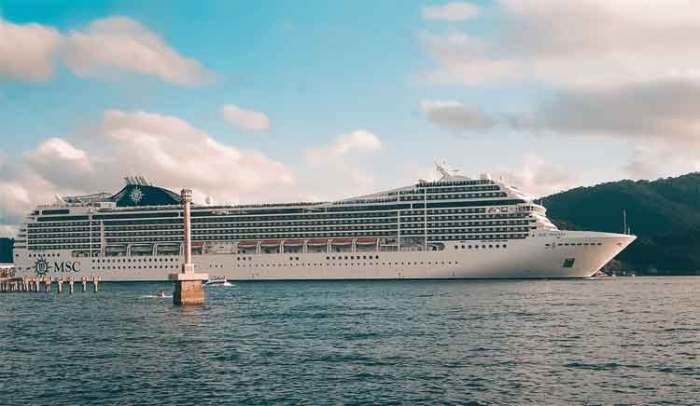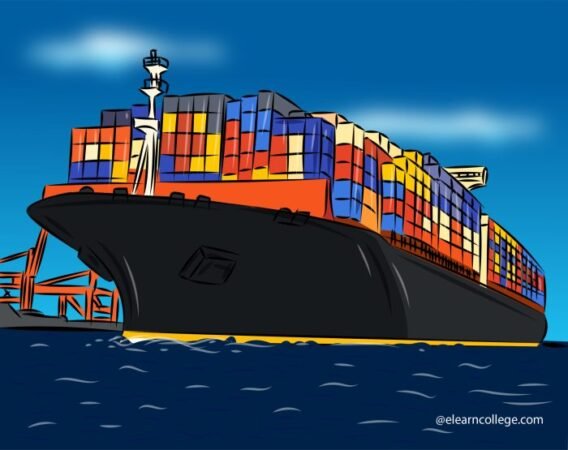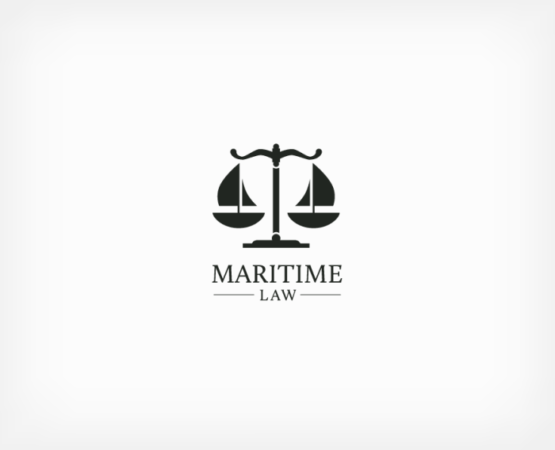
- Overview of Maritime Law Masters Programs in Europe
- Specializations within European Maritime Law Masters Programs
- Career Prospects and Job Market for Maritime Law Graduates in Europe
- Tuition Fees and Funding Opportunities
- International Aspects of Maritime Law Studies in Europe
- Ending Remarks
- User Queries
Navigating the complex world of international maritime law requires specialized expertise. A Master’s degree in Maritime Law from a European university offers a unique opportunity to delve into this fascinating field, gaining in-depth knowledge and valuable practical skills. This guide explores the diverse programs available across Europe, highlighting their unique specializations, career prospects, and funding opportunities.
From understanding shipping regulations and insurance intricacies to mastering environmental law and international maritime conventions, these programs equip graduates with the tools to excel in a globalized maritime industry. We’ll examine the curriculum variations, admission requirements, and career paths offered by leading European universities, providing a roadmap for prospective students.
Overview of Maritime Law Masters Programs in Europe
Pursuing a Masters in Maritime Law in Europe offers access to a specialized field within a globally interconnected legal landscape. These programs cater to a diverse student body, encompassing those with undergraduate degrees in law, international relations, and related disciplines, who aim to specialize in the complexities of maritime regulations, shipping, and trade. The programs provide a strong theoretical foundation alongside practical application, often incorporating case studies and simulations.
European Universities Offering Maritime Law Masters Programs
A comprehensive list of all European universities offering dedicated Maritime Law Masters programs is difficult to compile definitively due to the evolving nature of university offerings. However, a selection of institutions known for strong maritime law programs is presented below. It is crucial to consult individual university websites for the most up-to-date information on program availability and curriculum.
| University | Country | Program Name | Program Focus |
|---|---|---|---|
| University of Southampton | United Kingdom | LLM in Maritime Law | Focuses on international shipping law, marine insurance, and maritime dispute resolution. |
| University of Groningen | Netherlands | LLM in International Maritime Law | Emphasizes international conventions, jurisdiction, and the legal aspects of shipping and trade. |
| University of Hamburg | Germany | LLM in Maritime and Transport Law (or similar) | Often incorporates aspects of transport law alongside maritime law, with a focus on European and international regulations. Specific program names may vary. |
| National University of Ireland, Galway | Ireland | LLM in Maritime Law (or similar) | May focus on aspects relevant to Ireland’s coastal economy and shipping industry, alongside broader international perspectives. Specific program names may vary. |
Admission Requirements for Maritime Law Masters Programs
Admission requirements generally include a relevant undergraduate degree (often in law, but related fields may be considered), a minimum GPA (varying by institution), and proof of English language proficiency (TOEFL, IELTS, or equivalent). Some programs may require work experience, particularly in the maritime or legal sector. Strong letters of recommendation and a compelling personal statement showcasing interest and aptitude in maritime law are also typically essential.
Typical Curriculum Structure and Course Topics
Maritime Law Masters programs usually incorporate a blend of core and elective courses. Common core topics frequently include international maritime conventions (e.g., UNCLOS, IMO conventions), shipping contracts (charterparties, bills of lading), maritime insurance, collision and salvage law, and maritime dispute resolution (arbitration, litigation). Elective courses may delve into more specialized areas such as port state control, marine environmental law, or the legal aspects of offshore energy. The specific curriculum will vary based on the institution and its research focus. For example, a program in a country with a strong shipping industry might place greater emphasis on commercial shipping law, while a program near a significant port might include more courses on port management and regulation.
Specializations within European Maritime Law Masters Programs
European Maritime Law Masters programs offer a diverse range of specializations, allowing students to tailor their studies to specific career interests within the maritime industry. These specializations build upon core maritime law principles, providing in-depth expertise in particular areas of practice. The choice of specialization significantly influences the potential career paths and research opportunities available to graduates.
Shipping Law
Shipping law focuses on the legal aspects of vessel ownership, operation, and chartering. This specialization covers topics such as ship registration, maritime liens, collisions, salvage, and the carriage of goods by sea. Graduates with a specialization in shipping law are well-suited for roles in shipping companies, law firms specializing in maritime law, and government regulatory bodies. Research opportunities might involve analyzing the effectiveness of international conventions governing maritime transport or investigating the legal implications of emerging technologies in shipping, such as autonomous vessels.
Marine Insurance
Marine insurance specialization delves into the intricacies of insuring vessels, cargo, and associated risks. Students explore various types of marine insurance policies, claims procedures, and the legal framework governing insurance contracts. Career paths include roles in insurance companies, claims adjusting firms, and as legal counsel for shipping companies. Research in this area could examine the impact of climate change on marine insurance risk assessment or the development of innovative insurance products for the offshore renewable energy sector.
Environmental Law in the Maritime Context
This specialization addresses the legal and regulatory aspects of protecting the marine environment from pollution and other harmful activities. It covers topics such as the prevention of marine pollution, the liability for environmental damage, and the regulation of offshore activities. Graduates often find employment in environmental agencies, law firms specializing in environmental law, and organizations focused on marine conservation. Research could focus on the legal challenges of implementing international environmental agreements or the effectiveness of regulations designed to mitigate the environmental impact of shipping.
International Maritime Law
International maritime law covers the international legal framework governing maritime activities, including the United Nations Convention on the Law of the Sea (UNCLOS). This specialization examines international treaties, conventions, and dispute resolution mechanisms relevant to maritime affairs. Graduates are well-prepared for careers in international organizations, government agencies, and international law firms. Research opportunities might involve analyzing the legal implications of maritime boundary disputes or the effectiveness of international mechanisms for combating piracy.
Career Prospects and Job Market for Maritime Law Graduates in Europe
The maritime industry, while cyclical, consistently requires legal expertise. A master’s degree in maritime law provides graduates with specialized knowledge highly valued in a globalized shipping and trade environment. The job market for maritime law graduates in Europe varies depending on the specific country and economic climate, but generally offers promising career paths for skilled professionals.
The demand for maritime law specialists fluctuates with global trade activity and economic conditions. While precise, universally applicable statistics are difficult to obtain, anecdotal evidence and reports from professional organizations suggest a healthy, albeit competitive, job market in major European maritime hubs like London, Hamburg, Rotterdam, and Athens. These cities attract a large concentration of shipping companies, law firms specializing in maritime law, and related businesses, creating a higher density of job opportunities. Smaller ports and coastal regions may have fewer opportunities, but the demand for legal expertise related to fishing, coastal protection, and local maritime regulations remains consistent.
Potential Employers for Maritime Law Graduates
A maritime law degree opens doors to a diverse range of employers. Graduates can find employment across various sectors, each offering unique career paths and challenges.
- International and National Law Firms: These firms often have specialized maritime law departments handling complex litigation, arbitration, and contract negotiations.
- Shipping Companies: Large shipping companies employ in-house legal counsel to manage contracts, regulatory compliance, and dispute resolution.
- P&I Clubs (Protection and Indemnity Clubs): These mutual insurance associations provide liability coverage to ship owners and operators, requiring specialized maritime legal expertise.
- Insurance Companies: Marine insurance is a significant sector, employing lawyers to assess risk, handle claims, and manage litigation.
- Government Agencies: Maritime administrations and regulatory bodies employ lawyers to draft and enforce legislation, conduct investigations, and advise on policy matters.
- Ports and Terminals: Larger port authorities often require legal counsel to manage contracts, regulatory compliance, and disputes related to port operations.
- Classification Societies: Organizations like DNV GL, Lloyd’s Register, and Bureau Veritas employ legal professionals to handle technical and legal issues related to ship classification and safety.
Hypothetical Career Progression Path for a Maritime Law Graduate
A graduate’s career path can vary significantly depending on their chosen specialization and employer. However, a typical progression might look like this:
- Junior Associate/Trainee (Years 1-3): This initial stage involves assisting senior lawyers, conducting legal research, drafting documents, and attending client meetings. The focus is on developing practical skills and gaining experience in different areas of maritime law.
- Associate Lawyer (Years 3-7): With increasing experience, graduates take on more responsibility, managing smaller cases independently, and contributing significantly to larger projects. They might specialize in areas like shipping contracts, marine insurance, or maritime disputes.
- Senior Associate/Legal Counsel (Years 7-12): Senior associates manage complex cases, supervise junior lawyers, and provide legal advice to clients. In-house roles might involve managing a team and overseeing compliance with regulations.
- Partner/Head of Department (Years 12+): This leadership role involves business development, strategic planning, and managing a team of lawyers. Partners often have a significant client base and a strong reputation within the maritime legal community.
Tuition Fees and Funding Opportunities

The cost of pursuing a Maritime Law Masters program in Europe, and the availability of financial assistance, vary significantly depending on the chosen university and the student’s nationality. Understanding these factors is crucial for prospective students in planning their studies. This section details tuition fee ranges across different European countries and Artikels various funding opportunities available to international students.
Tuition Fee Ranges by Country
Tuition fees for Maritime Law Masters programs are influenced by factors such as the university’s reputation, the program’s specific curriculum, and the country’s overall cost of living. The following table provides a general overview, acknowledging that actual fees can vary. It’s essential to check directly with individual universities for the most up-to-date information.
| Country | Tuition Fee Range (EUR per year) |
|---|---|
| United Kingdom | 15,000 – 30,000 |
| Netherlands | 10,000 – 20,000 |
| Germany | 0 – 15,000 (Public universities often have lower or no tuition fees for EU students) |
| France | 200 – 10,000 (Highly variable, depending on university and student status) |
| Greece | 1,000 – 5,000 |
| Italy | 1,000 – 8,000 |
Scholarships, Grants, and Financial Aid Opportunities
Numerous funding opportunities exist for international students seeking a Maritime Law Masters degree in Europe. These include scholarships offered by universities, government grants, and external funding organizations. Successful applicants often demonstrate strong academic merit, relevant experience, and a clear articulation of their future goals.
Application Process for Funding Opportunities
The application process for each funding opportunity differs. Generally, applicants must submit a comprehensive application package, including academic transcripts, letters of recommendation, a personal statement outlining their academic and professional aspirations, and a detailed financial need statement (if applicable). Specific requirements vary greatly, depending on the source of funding. Deadlines are also crucial; applications often need to be submitted several months before the academic year begins. Thorough research and careful attention to deadlines are essential for maximizing the chances of securing funding.
International Aspects of Maritime Law Studies in Europe
Europe’s central location in global maritime trade, coupled with its diverse legal traditions and strong international institutions, makes it an ideal location for studying maritime law from an international perspective. A European maritime law education provides students with a unique opportunity to gain a deep understanding of the complexities of international maritime regulations and their practical application, while simultaneously building a valuable international network.
Studying maritime law in Europe offers unparalleled access to a rich tapestry of legal systems and approaches. This exposure fosters critical thinking and adaptability, essential skills for navigating the intricacies of international maritime disputes and transactions. The diverse perspectives encountered during studies cultivate a nuanced understanding of global maritime issues, preparing graduates for a wide range of international careers.
European Legal Systems and Their Approaches to Maritime Law
European countries, while sharing membership in the European Union and adhering to some common legal frameworks, maintain distinct legal traditions and approaches to maritime law. For example, the UK, with its common law heritage, emphasizes precedent and case law, while continental European countries, such as Germany or France, rely more heavily on codified statutes and legal scholarship. This diversity in legal systems provides students with a broader understanding of how maritime law is interpreted and applied across different jurisdictions. Understanding these nuances is critical for international maritime lawyers. This comparative approach is a key benefit of studying in Europe.
Enhancement of Global Career Prospects through European Maritime Law Education
A European maritime law education significantly enhances global career prospects. Graduates possess a competitive edge due to their familiarity with various legal systems and international conventions. Furthermore, the strong international network developed during studies opens doors to opportunities worldwide.
Relevant International Organizations and Institutions
Several international organizations and institutions play a crucial role in maritime law. The International Maritime Organization (IMO), headquartered in London, is a specialized agency of the United Nations responsible for regulating shipping and preventing marine pollution. The International Tribunal for the Law of the Sea (ITLOS), located in Hamburg, Germany, adjudicates disputes related to the Law of the Sea Convention. The European Maritime Safety Agency (EMSA), based in Lisbon, Portugal, contributes to maritime safety and environmental protection within the European Union. Graduates from European maritime law programs are well-positioned to work with these and other international bodies. For example, a graduate might find employment with an international shipping company needing legal expertise in various jurisdictions, or within the legal department of an organization like the IMO.
Ending Remarks
Pursuing a Maritime Law Masters in Europe presents a compelling pathway to a rewarding career in a dynamic and globally interconnected industry. The combination of rigorous academic training, access to renowned faculty, and ample networking opportunities positions graduates for success in diverse roles within law firms, shipping companies, insurance providers, and governmental agencies. This guide serves as a starting point for those seeking to embark on this enriching academic journey.
User Queries
What are the language requirements for Maritime Law Masters programs in Europe?
Language requirements vary by university and program but generally include proficiency in English, sometimes supplemented by the local language of the host country.
How long does a Maritime Law Masters program typically last?
Most programs last one to two academic years, though the duration can vary depending on the specific program and university.
Are there online Maritime Law Masters programs in Europe?
While many programs are in-person, some universities may offer blended or fully online options. Check individual program details for specifics.
What is the average salary for a Maritime Law graduate in Europe?
Salaries vary significantly based on experience, location, and employer. However, graduates can expect competitive salaries within the legal and maritime sectors.




